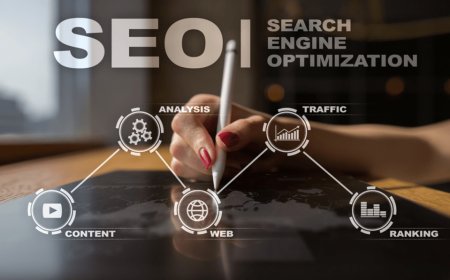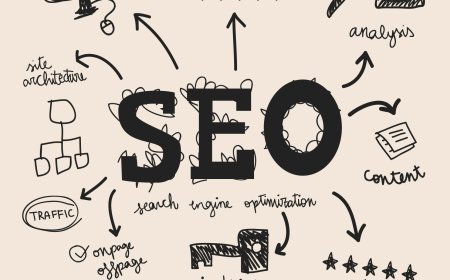AI-Powered Meta Tags: Do They Still Matter in 2025?
With AI rewriting how search engines understand content, do meta tags still matter? Discover their role in 2025's AI-powered SEO landscape

Meta tags have traditionally been an important aspect in the ever-expanding world of search engine optimization (SEO), as they enhance a web page's visibility. However, the relevance of AI-powered meta tags in 2025 may be questioned since artificial intelligence (AI) transforms the digital marketing environment.
Do they remain key ranking factors, or are they outperformed by complex algorithms and accountability metrics targeting users?
In this blog article, we will discuss meta tags, their effects on SEO, and how to make them work in your favor. We will also include optimization suggestions on how to use ChatGPT to write meta-content that can be successful in SEO.
What Are Meta Tags, and How Has AI Changed Them?
Meta tags are snippets of HTML code that provide metadata about a webpage, such as its title, description, and keywords. They dont appear on the page but are critical for search engines and social platforms to understand and index content.
Knowing ChatGPT optimization tips or advice for any other AI can be important. Common meta tags include:
-
Title Tag: The clickable headline in search results.
-
Meta Description: A summary of the pages content.
-
Meta Keywords: Historically used to list relevant keywords (now largely obsolete).
-
Open Graph Tags: Control how content appears when shared on social media.
-
Robots Meta Tag: Guides search engine crawlers on indexing behavior.
In 2025, AI will dominate in helping create meta tags and optimization. Applications such as ChatGPT, Jasper, and proprietary AI services can incorporate large amounts of data to create meta tags that reach the user's intent, search patterns, and algorithmic preferences.
Meta tags generated by AI are proactive, contextual, and audience-specific, which makes them more useful than manual work.
Why AI-Powered Meta Tags Matter in 2025
Although some people argue that meta tags are becoming obsolete because of the AI DoEs on search algorithms, they are still critical because of various factors:
-
Search Engine Rankings: Title tags and meta descriptions have remained a call sign for Google and other search engines' judgments of relevance. An optimized title tag may help increase click-through rate (CTR) and, indirectly, rankings.
-
User Experience: Meta descriptions give users a peek into the content and dictate whether they visit your link. With the help of AI, the interest of these snippets is guaranteed.
-
Social Media Visibility: Content is displayed when sharing links to Facebook and X using Open Graph and Twitter Card meta tags to increase user engagement on the platform.
-
Voice Search Optimization: The trend of voice assistants supports that AI-designed meta tags are compatible with conversational searches, making them more findable.
-
Scalability: AI would automate the generation of meta tags on large websites and require relevance and uniformity across thousands of pages.
Technical Insights: How AI Optimizes Meta Tags
Meta tag optimization using AI has various sophisticated methods that are more than conventional keyword stuffing. So here is a technical breakdown:
1. Natural Language Processing (NLP)
AI programs like ChatGPT apply NLP to interpret user requests and create meta-tags that meet search intent.
For example, when someone searches for the query: best running shoes 2025, an AI could write something such as: Find out the best running shoes of 2025: professional reviews and performance data.
This aligns with informational intent and the use of trending keywords.
2. Predictive Analytics
AI learns past search behaviors, performance of rivals, and seasonality to identify the keywords that would perform well.
Other tools, such as SurferSEO and Ahrefs, incorporate AI to propose meta tags that optimize ranking opportunities.
3. Dynamic Personalization
AI can create meta tags targeted at certain demographics, locations, or devices.
For example, the meta description for a person using a mobile device in New York is served differently than for a desktop device user located in London, making the results more relevant and also increasing CTR.
4. A/B Testing Automation
Machine learning-based AI platforms such as Optimizely allow marketers to introduce more variations of the meta tag to determine which mixture has the most engagement.
Such a data-driven strategy guarantees constant advancement.
5. Schema Markup Integration
AI can also be used to auto-create the schema markup (an extended type of structured data) and meta tags, which can help improve the rich snippets in the search results.
For example, a product page can have a schema of the price, reviews, availability, etc., making it stand out.
How to Leverage AI-Powered Meta Tags
Here are some steps to create and optimize AI-powered meta tags, and We've added ChatGPT optimization tips to remain competitive in 2025.
Step 1: Use AI Tools for Keyword Research
Begin by finding high-intent keywords, which may be AI-related keyword tools such as SEMrush, Ahrefs, or even Google Keyword Planner.
Put these keywords into ChatGPT, and enter something like: Create a list of 10 meta descriptions of a blog post on the topic of best running shoes 2025 using the keyword top running shoes.
Edit the output so it is shorter (less than 160 characters in meta descriptions) and interesting.
Step 2: Craft Compelling Title Tags
Title tags need to be 50-60 characters long so that they are not truncated in the search results. To get some ideas, write a prompt with ChatGPT, e.g., 5 title tags on a page about AI-powered SEO tools less than 60 characters.
Place the main keyword near the beginning and supplement it with the power words such as best, ultimate, and 2025 to attract more clicks.
Step 3: Optimize Meta Descriptions for CTR
Meta descriptions should clearly summarize the pages value and include target keywordsespecially when aiming for ChatGPT SEO visibility, where optimized content is more likely to appear in AI-generated responses.
Just give ChatGPT a prompt such as, Generate a meta description (150 characters) of a page that talks about ChatGPT optimization tips with its call-to-action.
Sample heading: Master ChatGPT optimization secrets to accelerate 2025 SEO. Discover professional secrets today!
Step 4: Implement Open Graph Tags
In the case of social media, apply AI solutions, such as Yoast SEO or RankMath, to create Open Graph tags. These will make your content attractive even when posted.
Using tools like Facebook Sharing Debugger and test tags to ensure they are rendered correctly.
Step 5: Monitor and Refine with AI Analytics
Monitor the performance of meta tags through AI-powered analytical tools provided by Google Search Console or Hotjar.
Check the CTR, impressions, and bounce rates to determine which tags are not performing well. Retrain this information over ChatGPT to produce better versions.
Step 6: Avoid Common Pitfalls
-
Over-Optimization: Do not cram keywords; unnatural content is subject to a Google penalty.
-
Duplicate Tags: To avoid cannibalisation, make sure each page has only unique meta tags.
-
Neglecting Mobile: Market to mobile users because by 2025, 60% of all searches will be mobile-induced.
Conclusion
In 2025, meta tags run on AI will not be a thing of the past; they will be an ever-changing bridge between sophisticated search algorithms and user expectations. Using AI tools such as ChatGPT, companies can develop meta tags that help rank them, provide interaction with users, and spur social media popularity.
The secret is a strategic AI application: integrate accurate prompts, data-based observations, and real-time tracking to create meta tags that appeal to search engines and viewers. As SEO becomes more advanced, it is important not to lose touch with it. We should be ahead of the curve and understand the possibilities AI can bring while staying an evergreen, successful, ready-to-help-others badass company.


































